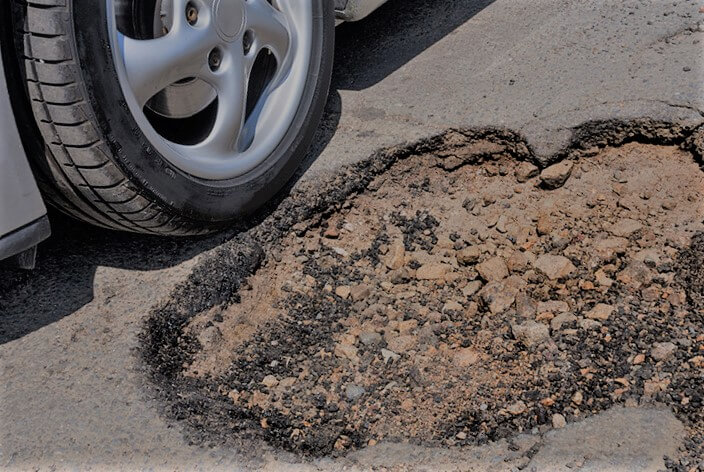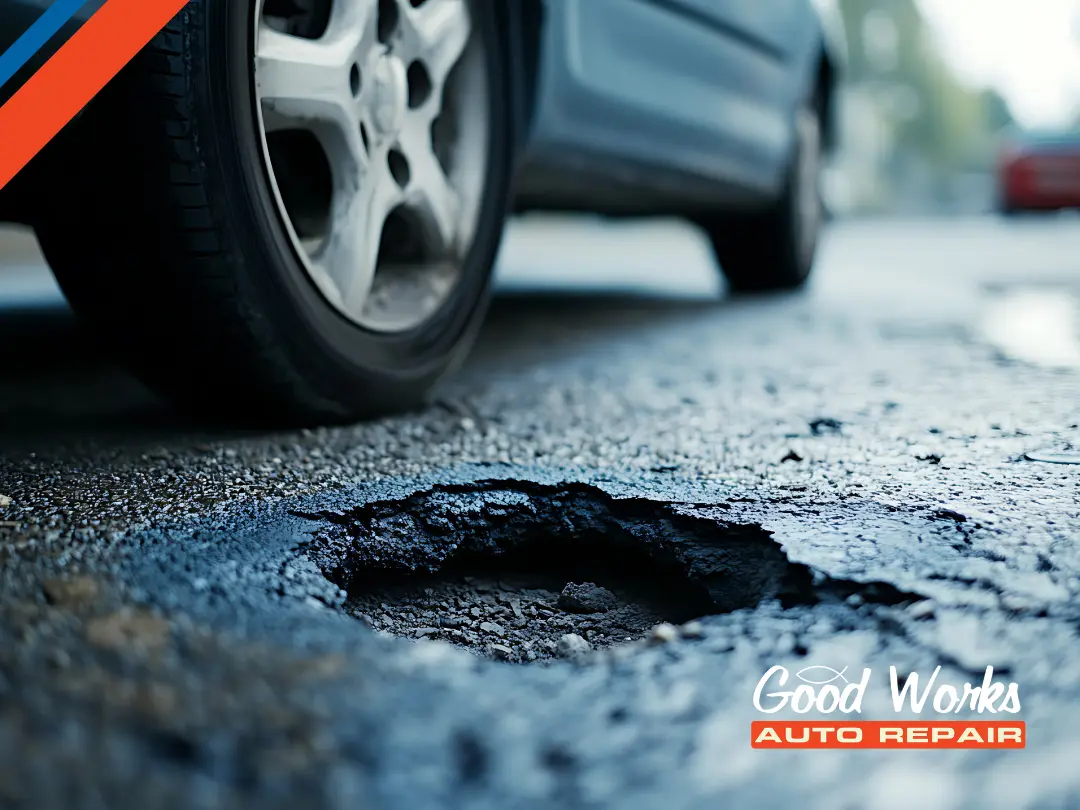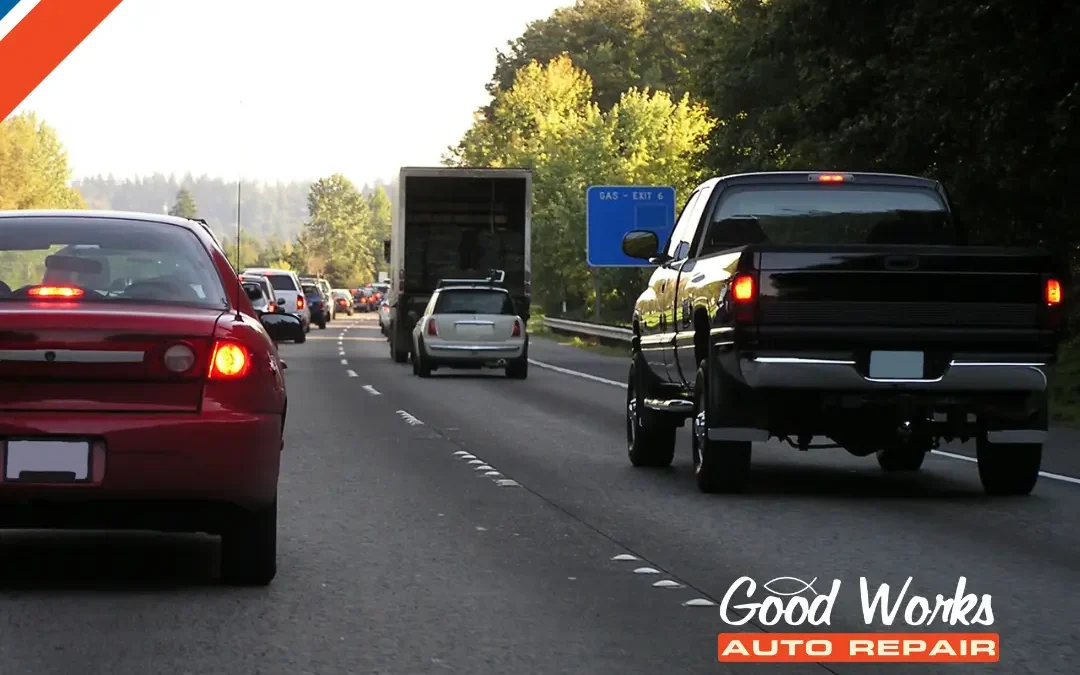 Have you ever wondered how that pothole jumped out at you? It’s an unmistakable sound—that loud “ka-thunk” that is often unavoidable. This time of year, it is an ongoing battle between your car and potholes, and the pothole usually wins. As you can imagine, driving over a pothole is never a good thing for any vehicle. Potholes can impose unwanted damage to your car tires, wheels, steering and suspension, and alignment. All things that can lead you to an auto repair shop, however, pothole damage may not occur instantly.
Have you ever wondered how that pothole jumped out at you? It’s an unmistakable sound—that loud “ka-thunk” that is often unavoidable. This time of year, it is an ongoing battle between your car and potholes, and the pothole usually wins. As you can imagine, driving over a pothole is never a good thing for any vehicle. Potholes can impose unwanted damage to your car tires, wheels, steering and suspension, and alignment. All things that can lead you to an auto repair shop, however, pothole damage may not occur instantly.
The non-profit Car Care Council and Firestone Complete Auto Care advise motorists to watch for these following signs to help determine if hitting a pothole has damaged their vehicle.
Steering wheel shakes or feels “off”
We all know how our car normally feels when driving it. If your steering wheel is vibrating or shaking, or if it seems like it’s off-center or pulling in one direction, it’s time to have your wheel alignment checked. Proper wheel alignment is important for the lifespan of tires and helps ensure safe handling.
Loss of control, rolling or swaying on routine turns, bottoming out on city streets or bouncing excessively on rough roads are indicators that the steering and suspension may have been damaged. The steering and suspension are key safety-related systems. Together, they largely determine a vehicle’s ride and handling.
Your tires or rims are visibly damaged
If one of your tire rims has a sizeable dent, there’s a good chance that your tire has been damaged. A flat tire is a surefire way to know it’s time for pothole repair. It is also important to inspect your tires after hitting a pothole even if your tires aren’t visibly deflated.
If your tire pressure is low, or your tires have bulges or blisters on the sidewalls, have them checked out as soon as possible. Ignoring these signs could lead to costly tire repair and compromise your safety while driving. Many auto technicians offer free tire checks as well, so definitely take advantage of that.
Fluid is leaking from under your car
Depending on the pothole depth, it’s possible that the undercarriage of your vehicle was damaged. The undercarriage can scrape the road surface when your car dips down into a pothole, which can cause fluid leaks and invite rust in places you can’t even see.
If you suspect this happened, bring your vehicle in for an inspection. Trained technicians can help spot any damage to your car’s undercarriage before it becomes a serious (and costly) problem.
Phoenix pothole troubles
On average, Phoenix receives reports of and fixes about 30,000 potholes annually. This year looks to be no different. According to March Glock, street transportation deputy for Phoenix, the rain Phoenix gets undermines the layers of asphalt and gets into the cracks in the asphalt, causing sections to pop out, which creates the potholes. Though older sections of the roadways are more susceptible to damage, anywhere in the road where there may be cracks can be infiltrated by potholes.
The city of Phoenix has a special telephone number, 602-262-6441, where local drivers can call in and report a pothole in their neighborhood. Once a call has been placed, it typically takes about 24 hours for crews to fix the pothole. After a big storm, however, it may take about 48 to 72 hours.






